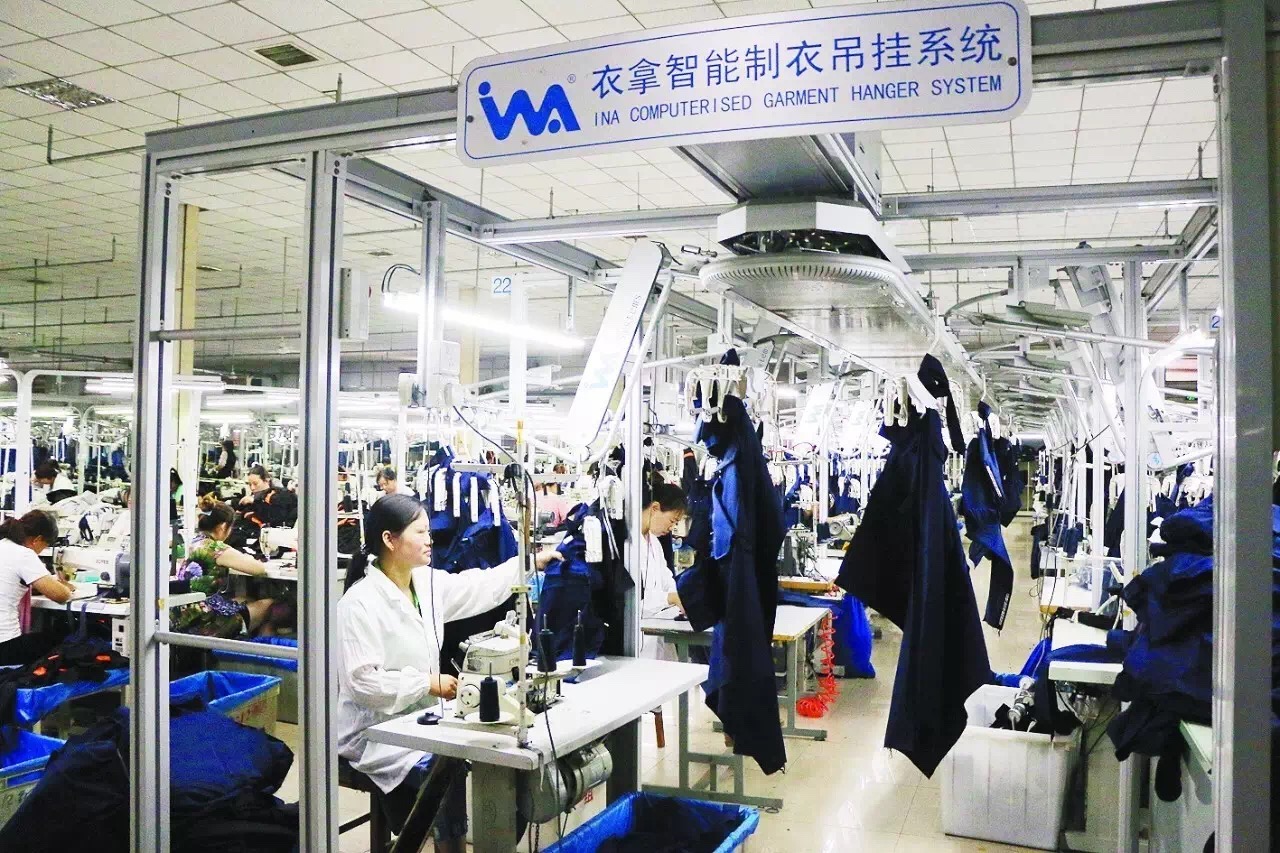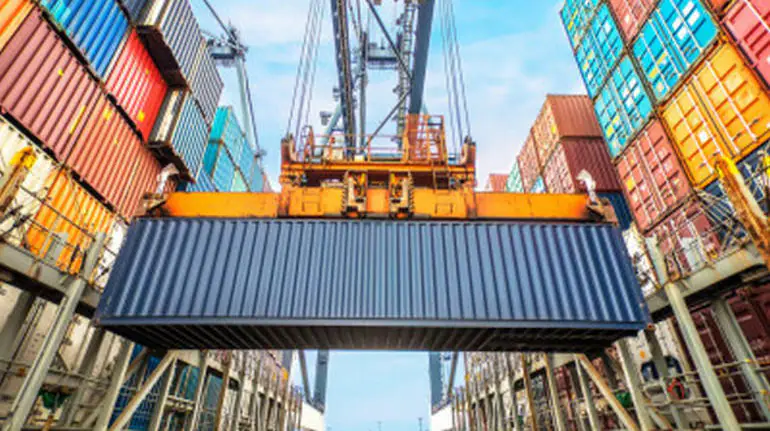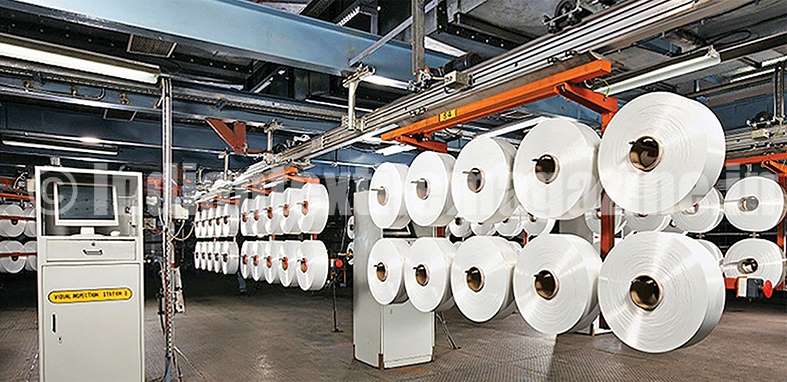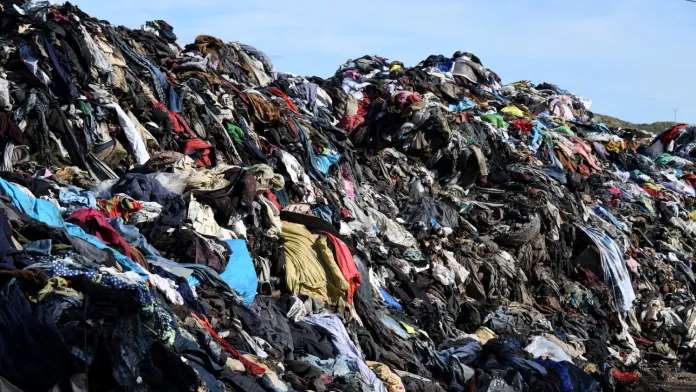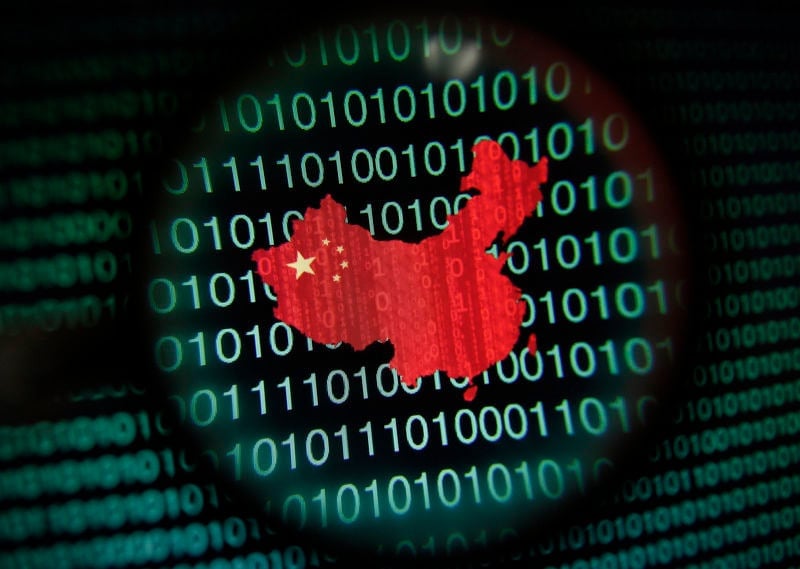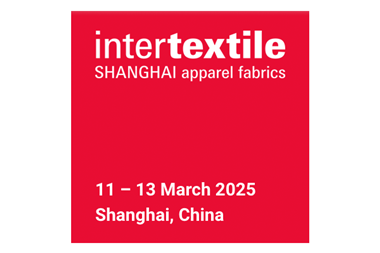FW
All Pakistan Textile Mills Association (APTMA) has warned the Special Investment Facilitation Council (SIFC), of potential further declines in exports due to the lack of a financially sustainable energy source.
In a presentation to the SIFC, textile millers emphasised the urgency of addressing this issue and proposed measures to enhance the competitiveness of textile exports globally.
One major concern highlighted by the association was the absence of a financially viable energy source, which hampers manufacturing sustainability and global competitiveness.
To address this challenge, APTMA suggested several measures including operationalisation of the Competitive Trading Bilateral Contracts Market (CTBCM) and facilitating business-to-business (B2B) power contracts with competitive end-use prices.
APTMA also proposed leveraging green energy sources such as geothermal plants and hybrid solar/wind plants to procure energy and advocated for an increase in the cap on solar net-metering for industrial consumers.
Pakistan’s textiles and apparel exports rose by 54 per cent to $19.3 billion in FY22, thanks to regionally competitive energy tariffs (RCET) of 9 cents/kWh in 2021-22. However, a subsequent increase in power tariffs to over 14 cents/kWh led to a decline in exports to $16.5 billion in FY23.
Power tariffs for industrial consumers have risen to approximately 17.5 cents/kWh, making production financially unfeasible. This rise is attributed to factors such as quarterly tariff adjustments, fuel price adjustments, and declining power consumption. Compared to regional economies like Bangladesh, India, and Vietnam, Pakistan's power tariffs are more than double, exacerbating the industry's challenges.
Moreover, gas prices for industrial consumers have surged by 223 per cent since January 2023, rendering captive generation financially unviable. Consequently, Pakistan’s textiles and apparel exports have stagnated at $1.4 billion per month, significantly below the industry's installed capacity of $2 billion/month. This situation has led to idle investments of approximately $5 billion, adversely affecting investor sentiment and confidence in the economy.
The United States International Trade Commission (USITC) is set to investigate whether the recent surge in prices of garment items sourced from Bangladesh indicates unfair competition.
This move comes after the USITC observed that the prices paid by the US for Bangladeshi garments per unit have surpassed the average prices paid for garments sourced from various countries. Prompted by this discrepancy, the agency has initiated an inquiry to ascertain if any anti-competitive practices are at play.
An independent and nonpartisan federal agency with quasi-judicial functions, USITC is tasked with fulfilling various trade-related mandates, as outlined on its website. Faruque Hassan, President, Bangladesh Garment Manufacturers and Exporters Association (BGMEA), is slated to participate virtually in the hearing scheduled for March 11.
According to Hassan, the rise in prices is primarily attributed to adjustments made by American clothing retailers and brands to offset increased raw material and shipping costs incurred during and after the pandemic. He noted that the unit price for Bangladeshi garments has been gradually increasing since 2017, while China's prices have declined. Presently, Bangladesh offers garments at $3.23 per unit, compared to $1.86 for China and $2.95 for Pakistan.
Hassan highlighted that Bangladesh's garment industry primarily focuses on manufacturing basic items, resulting in an average price level that exceeds the global average import price per unit paid by the US. He also pointed out that recent geopolitical tensions and fluctuations in diesel prices have further strained global supplies and demand dynamics.
Hassan emphasised, the cost of production has surged significantly in recent years due to rise in electricity costs by 25 per cent, gas by 286.5 per cent, and diesel by 68 per cent. Inflation has further elevated the cost of finance, contributing to increased production and goods costs. Additionally, bank charges, municipality fees, and certification fees have risen considerably.
Over the past decade, the garment industry has invested millions of dollars in factory remediation and green manufacturing initiatives to meet evolving due diligence requirements. Hassan hoped that the USITC would consider the broader context rather than solely focusing on cost and efficiency-based competitiveness. He also underscored the challenges stemming from the lack of local raw materials and foreign direct investment in the industry.
Further, Hassan urged for a comprehensive assessment of the multifaceted factors impacting Bangladesh's garment sector.
Euratex proudly launches the EU co-funded project Aequalis-4-TCLF, bolstering the textile, clothing, leather, and footwear (TCLF) sectors' upskilling and reskilling efforts under the EU Pact for Skills. With 19 partners primarily from Eastern and Northern Europe, the four-year initiative aims to enhance the skills of workers in the TCLF industry.
Building upon the blueprint of the Smart4TCLF project and complementing the Metaskills4TCLF initiative, Aequalis-4-TCLF emphasizes forging strong ties with regional and local entities to amplify skills initiatives.
It also seeks to establish a pan-European Network of TCLF vocational education and training (VET) and higher education (HE) providers. By conducting a skills gap analysis, the project will formulate new national skills strategies in seven countries, tailoring them to address regional needs while promoting diversity and combating discrimination in the TCLF industries.
Euratex's Director General, Dirt Vantyghem, lauds the initiative as a tangible realization of the TCLF Pact for Skills signed with the European Commission two years ago. Vantyghem emphasizes the crucial role of addressing the skills dimension in fostering a competitive TCLF industry in Europe.
Kraig Biocraft Laboratories, Inc. has announced its preparation of a second business investment application in Vietnam, marking a significant step in the expansion of its operations.
This forthcoming license application aligns with the company's recent memorandum of understanding with the Lam Dong Agro-Forestry Research and Experiment Center ("LAREC") and the Vietnam Sericulture Association ("VSA"). Through this collaboration, Kraig Labs aims to propel sericulture in Vietnam by leveraging its proprietary silk technology alongside the expertise of LAREC and VSA.
The investment license will facilitate the establishment of Prodigy Silk, a new wholly-owned subsidiary headquartered in Kraig Labs' recently disclosed facility in Lam Dong Province. This facility will serve as the operational hub for spring production trials, with renovations already underway for its full functionality in time for the trials.
Founder and CEO Kim Thompson expressed the significance of this strategic move, highlighting the company's consistent adherence to its business plan over the past two quarters. The management remains resolute in its commitment to executing its 2024 production plan for recombinant spider silk, underlining a proactive approach towards achieving its goals.
Renowned New York-based fashion retailer, J Crew unveiled a groundbreaking swimwear recycling initiative in partnership with the technology and logistics platform SuperCircle.
Accessible both online and across its nationwide chain of stores, this innovative program allows customers to trade in used swimwear from any brand for a $5 credit, which can be applied towards the purchase of full-price men's, women's, or kids' swimsuits, as outlined on the official program website. Customers can accrue credits up to $20, and can either mail in their swimwear or exchange it in person at any J Crew store.
Under the leadership of SuperCircle, based in New York, the returned swimwear in any condition is repurposed by transforming old fibers into new clothing items. Garments unsuitable for fiber-to-fiber recycling undergo processing through the company's open-loop recycling channels to be transformed into various products such as furniture batting, insulation, and padding.
Emphasising on the importance of adopting new recycling solutions, Chloe Songer, CEO and Co-founder, SuperCircle, says, with a significant portion of new textiles ending up in landfills within a year of production and textile waste surpassing plastic waste growth rates, recycling initiatives are becoming increasingly important.
SuperCircle operates on a business model where partner companies pay a monthly platform usage fee along with a recycling fee tied to the volume of materials collected. While textile recycling is gaining momentum as a preferred sustainability strategy for fashion brands embracing circular practices, recent setbacks like the bankruptcy filing of Renewcell highlight the challenges in making sustainability economically viable.
J Crew has strategically repositioned its operations in recent times. The company introduced a resale program in January 2023 and launched a virtual store in June.
Garment and textile businesses in Bangladesh have made a significant push to import apparel and textile waste, including clippings, without duties, to bolster the production of recycled fibers.
In addition to duty-free imports, these businesses are seeking exemptions from the 7.5 per cent value-added tax (VAT) on raw material sourcing for recycled fiber production and the 15 per cent VAT on the purchase of these fibers by spinning mills. Furthermore, they propose the adoption of a Harmonised System (HS) for imports, a standardised method used globally for classifying traded products.
Presented by Faruque Hassan, President, Bangladesh Garment Manufacturers and Exporters Association (BGMEA), during a pre-budget meeting with the National Board of Revenue (NBR), these proposals are geared towards sustaining apparel exports and enhancing the country's competitiveness in the global market.
Both the Bangladesh Knitwear Manufacturers and Exporters Association (BKMEA) and the Bangladesh Textile Mills Association (BTMA) echoed similar demands.
Reiterating on the need to support recycling initiatives, Abu Hena Md Rahmatul Muneem, Chairman, NBR, emphasised on the importance of backing recycling industries such as garment scrap and plastic to mitigate environmental impact.
However, he voiced concerns about potential misuse of the benefits, highlighting instances where privileges intended for industries were exploited due to inadequate mechanisms for detection. He emphasised on the need for stronger monitoring to prevent revenue losses for the state.
H&M Group is embarking on a new transformative venture to revolutionise sustainability in the textile industry. In collaboration with Vargas Holding and TPG Rise Climate, the group has cofounded a venture called Syre for rapid scaling of textile-to-textile polyester recycling.
Securing a groundbreaking off take agreement worth $600 million over seven years, the partnership sets a substantial foundation for H&M Group's long-term demand for recycled polyester. This agreement underscores a pivotal shift away from the prevalent bottle-to-textile recycling method towards a closed-loop alternative, marking a significant milestone in the industry's evolution.
Syre represents a crucial step forward in H&M Group's commitment to integrate circularity into its operations. By spearheading textile-to-textile recycling on a large scale, they aim to inspire other industry players to join the movement towards a sustainable future.
In alignment with its broader sustainability goals, H&M Group has enhanced its recycled material ambition, aiming for 100 per cent recycled or sustainably sourced materials by 2030, with a subgoal of achieving 30 per cent recycled materials by 2025, and now aiming for 50 per cent by 2030.
Recognising the need for collaboration and investment in innovative solutions, H&M Group continues to invest in scalable technologies like Syre. The venture is set to produce recycled polyester yarn of equivalent quality to virgin polyester, yet with a significantly reduced environmental footprint.
Syre's inaugural production plant, slated for North Carolina, United States, aims to be operational by 2024, with plans for global expansion thereafter. With aspirations to establish twelve operational plants within a decade, Syre aims to produce over 3 million metric tons of recycled polyester, marking the onset of a significant shift in the textile industry.
Moreover, H&M Group benefits from its partnership with Vargas Holding, which specialises in building impact companies, and TPG Rise Climate, a renowned investor in climate solutions and circular economy initiatives.
Abercrombie & Fitch Co projects, the company’s full-year revenue growth will surpass Wall Street estimates as demand for its apparel brands remains robust on account of a successful holiday shopping season and a promising start to spring in the United States.
Apparel retailers like Abercrombie and Lululemon Athletica have reaped the rewards of inventory management efforts and the introduction of new styles during the holiday period. Abercrombie, in particular, emphasised its increased marketing efforts and investments in digital and in-store experiences to attract customers, strategies it intends to maintain throughout the year.
Abercrombie anticipates, surpassing marketing expectations, first-quarter net sales will grow in low double digits, on account of positive reactions to its spring collection. While reduced discounts and lower shipping and raw material costs, such as cotton, have boosted Abercrombie's margins, potential increases in shipping costs in the second quarter and beyond due to the Red Sea conflict could offset some gains.
For fiscal year 2024, Abercrombie forecasts net sales growth of 4 per cent to 6 per cent, exceeding the LSEG estimate of 4 per cent growth to $4.43 billion. Analyst Dana Telsey, Telsey Advisory Group remarks, A&F brand remains robust with a resilient customer base and compelling assortment. It has the potential to further expand its margins through digital growth.
Surpassing analysts’ expectations, Abercrombie’s fourth-quarter revenue grew to $1.45 billion.
Inspired by the designs of 90’s and 2000s, Levi's has launched an extensive jeans range for Spring/Summer 2024.
Incorporating fibers suitable for warmer weather, the collection includes the Baggy Dad jeans range characterised by a relaxed design with an ‘easy top block’ and loose straight leg. The Baggy Dad Wide Leg jeans offer a wider silhouette with pleated legs in lightweight 10 oz. denim. Additionally, the Featherweight Baggy Dad is lightweight denim range available in both shorts and skirts. Catering to both functionality and style, the women's Baggy Cargo features utility pocket details, reminiscent of workwear vibes. For those seeking non-denim options for warmer climates, Levi's offers the lightweight pleated trouser shorts, tailored and refined for a loose fit.
In the men's collection, Levi's offers the 568 Stay Loose and the 468 Loose Short. The 568 Stay Loose aims to recreate a vintage, thrifted look with 14 oz. 100 per cent cotton denim. Sitting at the waist and maintaining a loose fit throughout, it offers a classic yet relaxed style. For a lighter option, the 568 Stay Loose Short is available in new lightweight cotton/linen denim. The men's 468 Loose Short, sitting at the waist and loose through the seat and thigh, hits just above the knee.
The Loose Fit family is now accessible on Levi's website, app, and select stores. During the company's Q4 earnings call last month, Michelle Gass, President and CEO, Levi's, hinted at the arrival of more loose fits. Loose Fit accounted for half of the brand's women's business and anticipated opportunities for more fashion fits like XL in 2024, she revealed.
Thai Acrylic Fibre Co., Ltd (TAF) is poised to make waves at Spinexpo, set to unfold at the World Expo Exhibition & Convention Centre in Shanghai from March 5-7, 2024. With a focus on advancing industry collaborations, TAF's participation underscores its pivotal role in driving sustainability through its innovative Regel technology. Beyond a mere display, TAF's presence at booth V04 serves as a clarion call for sustainable practices within the textile realm.
Regel takes center stage in TAF's repertoire for its sustainability approach. Crafted from recycled acrylic fibre, Regel comes in 50 per cent and 75 per cent recycled content variants. What distinguishes Regel is its ability to match the quality and performance of virgin acrylic fibre while significantly reducing the carbon footprint of textile production. Holding both GRS certification and bluesign Approved designation, Regel exemplifies TAF's unwavering commitment to environmental stewardship and innovative sustainability.
TAF's presence at Spinexpo transcends mere exhibition; it's an avenue to connect with industry luminaries, trailblazers, and potential collaborators. Tuhin Kulshreshtha, TAF's head of marketing, underscores the event's significance, emphasizing, "The Spinexpo platform offers invaluable networking opportunities, fostering partnerships that drive innovation and sustainability." With an eye toward the future, TAF seeks to leverage this premier stage to cultivate meaningful dialogues and partnerships shaping the textile landscape.
In an evolving textile landscape, sustainability takes precedence like never before. TAF's participation in Spinexpo 2024 signals a seismic shift toward eco-conscious production methods and materials. By showcasing Regel and engaging stakeholders worldwide, TAF not only contributes to the sustainability discourse but also sets new benchmarks for environmental responsibility in textiles. This exhibition stands as a pivotal juncture, heralding a collective stride toward a greener, more sustainable future.
TAF's presence at Spinexpo 2024 transcends the exhibition floor, marking a significant stride toward textile sustainability. By fostering collaborations and spotlighting the success of Regel technology, TAF catalyzes a shift toward a greener, more sustainable industry ethos. As we reflect on this momentous event, one thing is clear: the future of textiles hinges on innovation, sustainability, and collaborative efforts. TAF's participation in Spinexpo 2024 serves as a rallying cry, inspiring others to join the movement toward a more sustainable tomorrow.



